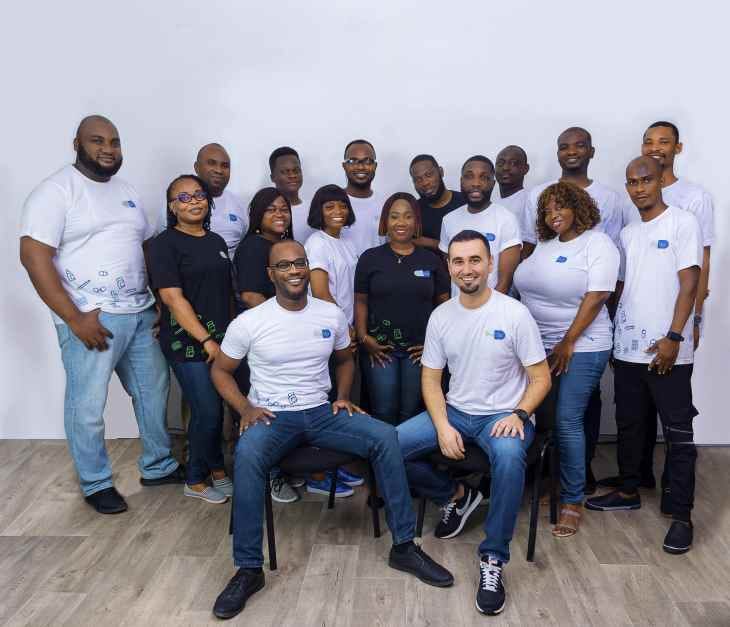DrugStoc, a Nigerian e-health medication procurement platform that connects drug producers with healthcare institutions like hospitals and pharmacies, has raised $4.4 million in series A funding.
Africa HealthCare Master Fund (AAIC) led the investment round for DrugStoc. Vested World, a Chicago-based venture business, the German Development Bank (DEG), and high-net-worth individuals with a deep interest in health-tech are among the other investors.
“When we started, I don’t think we ever had a doubt about the demand because we understood the scope of the problem. And we understood that people were fed up with the status quo,” said co-founder Chibuzo Opara.
“It’s the fact that we are transforming not just convenience and access but also paying great attention to quality which every healthcare professional at the end of the day is bothered by, that is the underlying drive in a lot of healthcare facilities or pharmacies.”
DrugStoc is expanding its coverage to more locations with the fresh investment, including more fulfillment centers and extended transit points and routes, which will provide better logistic alternatives for last-mile deliveries. It’s also forming alliances with financial institutions in order to expand access to long-term supply chain financing. In addition, significant investments in cold chain infrastructure are planned to improve the safe distribution of perishable goods.

Why The Investors Invested
The startup’s traction so far was a major influencing factor. At the moment, DrugStoc connects 400 manufacturers with 3,200 doctors, hospitals, and pharmacies. According to Opara, the platform’s monthly sales have increased by over 1,500 percent in the last three years, owing to the demand for quality assurance provided by DrugStoc’s platform. Every sale generates a commission for the startup. DrugStoc was awarded a share of the inaugural $1 million Africa Netpreneur Prize Initiative by the Jack Ma Foundation in 2019, a pitching competition that rewarded 10 businesses that provided answers to Africa’s essential concerns. They’ve also received a grant from Bill and Melinda Gates, as well as seed capital from VestedWorld, an early-stage investment vehicle focused on the Sub-Saharan African market.
Read also Nigeria’s Helium Health Expands into Middle East
The founders’ backgrounds also helped a great deal in attracting this investment. Chibuzo Opara and Adham Yehia, who met as students at Maastricht University in the Netherlands, both have experience in the healthcare profession. Yehia holds a master’s degree in health innovation management, whereas Opara has a PhD. Opara had also worked as a doctor for six years before deciding to pursue a career in economics and finance, which matched Yehia’s requirement for an advisor with experience in Nigeria’s healthcare sector. Yehia, a geneticist who had served on the management team at his father’s Lagos hospital, had firsthand knowledge of the problems that Nigerian hospitals faced. He also wanted to look into possible solutions for some of the difficulties he identified in the sector for his master’s project.
“We are very excited to be part of the DrugStoc journey. The pharmaceutical market in Africa has enormous growth potential, and we are glad to back a company that is well positioned to be a key player in the sector’s growth in sub-saharan Africa,” said AAIC director, Nobuhiko Ichimiya.
A Look At What The Startup Does
Opara and Yehia founded Drugstoc in 2015, however the firm’s history stretches back to 2010, when the two co-formed Integra Health, a hospital management company based on Yehia’s master’s degree project. Integra Health was first hired to administer 20 hospitals, and it was during this time that the inadequacies in Nigeria’s pharmaceutical supply chains became obvious.
Read also Ghana-based Telemedicine Startup, Africa Health Holdings, Raises $18m Series A
In 2015, the co-founders responded by developing and piloting a tech-based platform that connects manufacturers and distributors. This proposal did not take off since it was evident right away that a platform would not be enough. After a year of incubation at Stanford’s Institute for Innovation in Developing Economies, the twosome shifted gears in 2017, when DrugStoc was officially launched, including distribution.
“I think we came out of Stanford with a better understanding of business modeling and value chains than we understood it as a pilot phase,” Yehia commented on the incubation program.
“We decided we need to get a distribution license, and to do this the pharmaceutical way. And to do this the proper way, we needed to buy directly from the manufacturers and create the value chains internally,” he said.
DrugStoc is currently pursuing an aggressive expansion plan in Nigeria, with the goal of delivering high-quality pharmaceutical items to 100 million Nigerians. As it advances outside Lagos, the West African country’s economic core, the firm intends to expand into 16 states inside Nigeria. This is in addition to its more ambitious goal to expand outside Nigeria into other African markets.
Read also How Traditional Banks Can Gain an Edge in African Fintech Transformation
In retrospect, Yehia believes that technology alone would not have solved the fragmentation issues in pharmaceutical distribution, as they now recognize the critical importance of strategic infrastructure such as fulfillment centers — warehouses where orders are processed, packed, and shipped — and customer support units.
“In Nigeria, we intend to expand beyond 14 million we currently serve to cover just around 100 million people. And this would be achieved by expanding to about 16 states. Once we are done with the heavy lifting from that expansion, we will be training our sights on other countries,” he said.
DrugStoc e-pharmacy DrugStoc e-pharmacy DrugStoc e-pharmacy DrugStoc e-pharmacy
Charles Rapulu Udoh

Charles Rapulu Udoh is a Lagos-based lawyer who has advised startups across Africa on issues such as startup funding (Venture Capital, Debt financing, private equity, angel investing etc), taxation, strategies, etc. He also has special focus on the protection of business or brands’ intellectual property rights ( such as trademark, patent or design) across Africa and other foreign jurisdictions.
He is well versed on issues of ESG (sustainability), media and entertainment law, corporate finance and governance.
He is also an award-winning write
